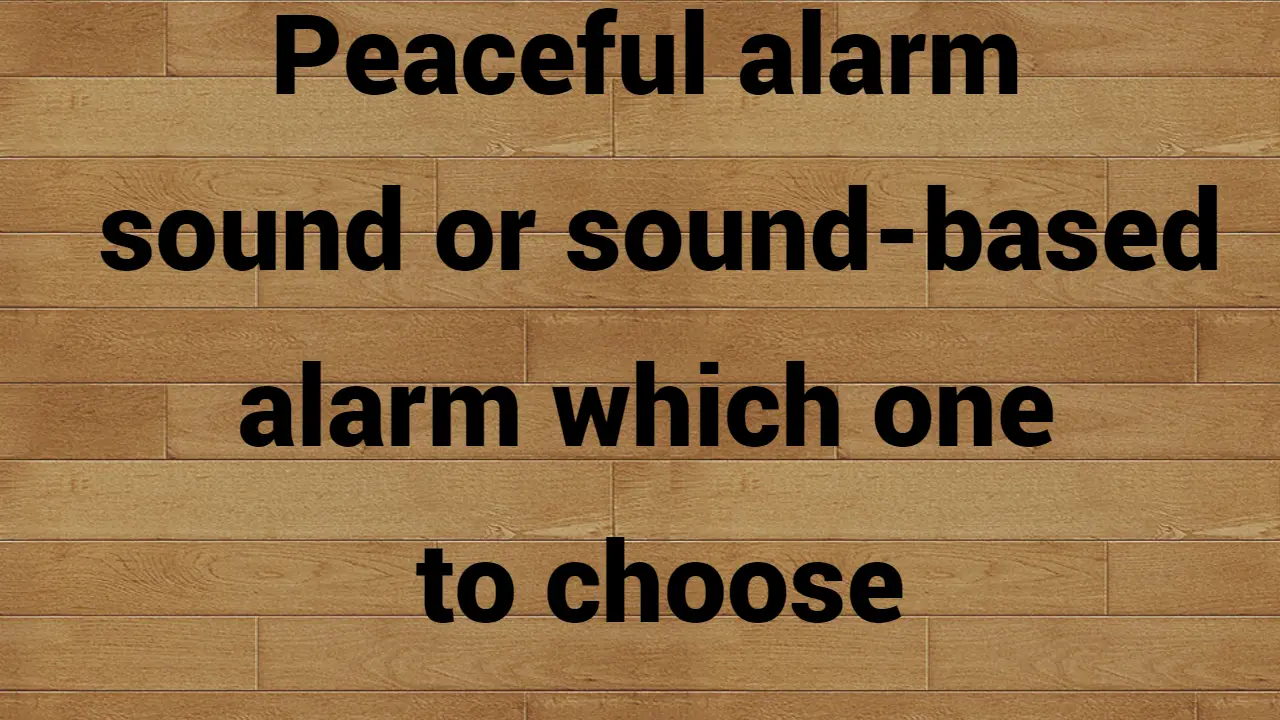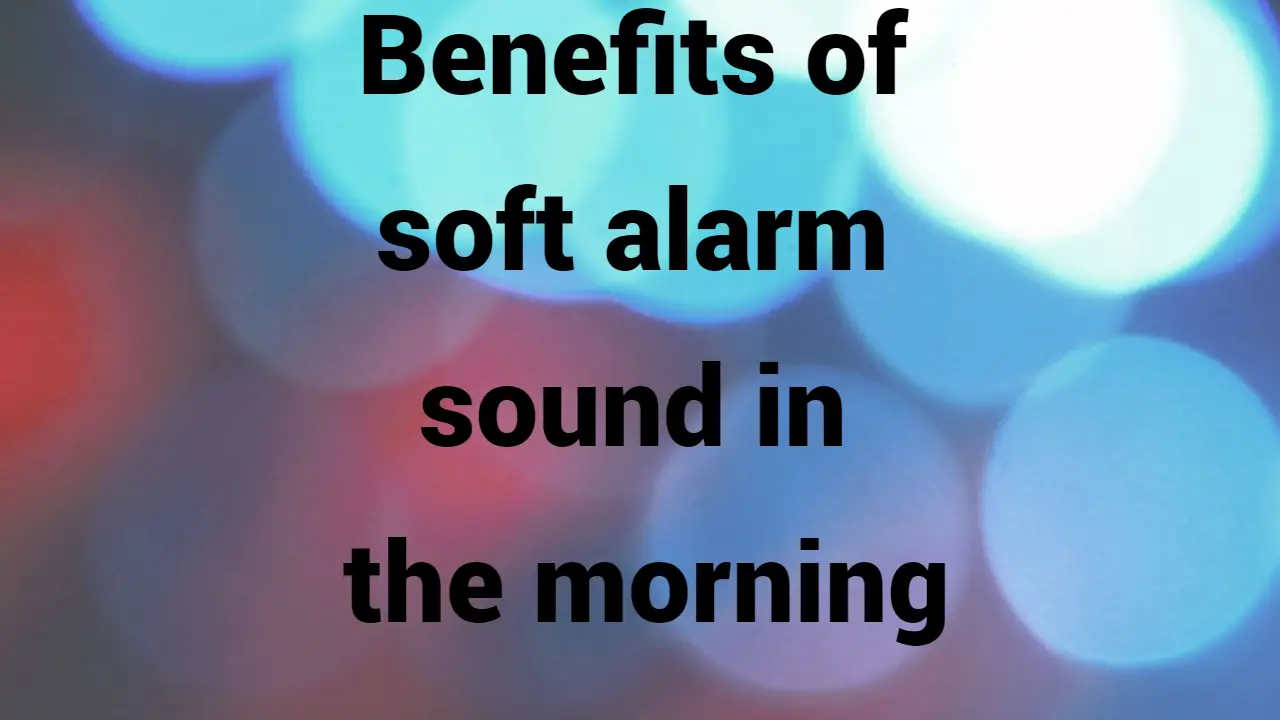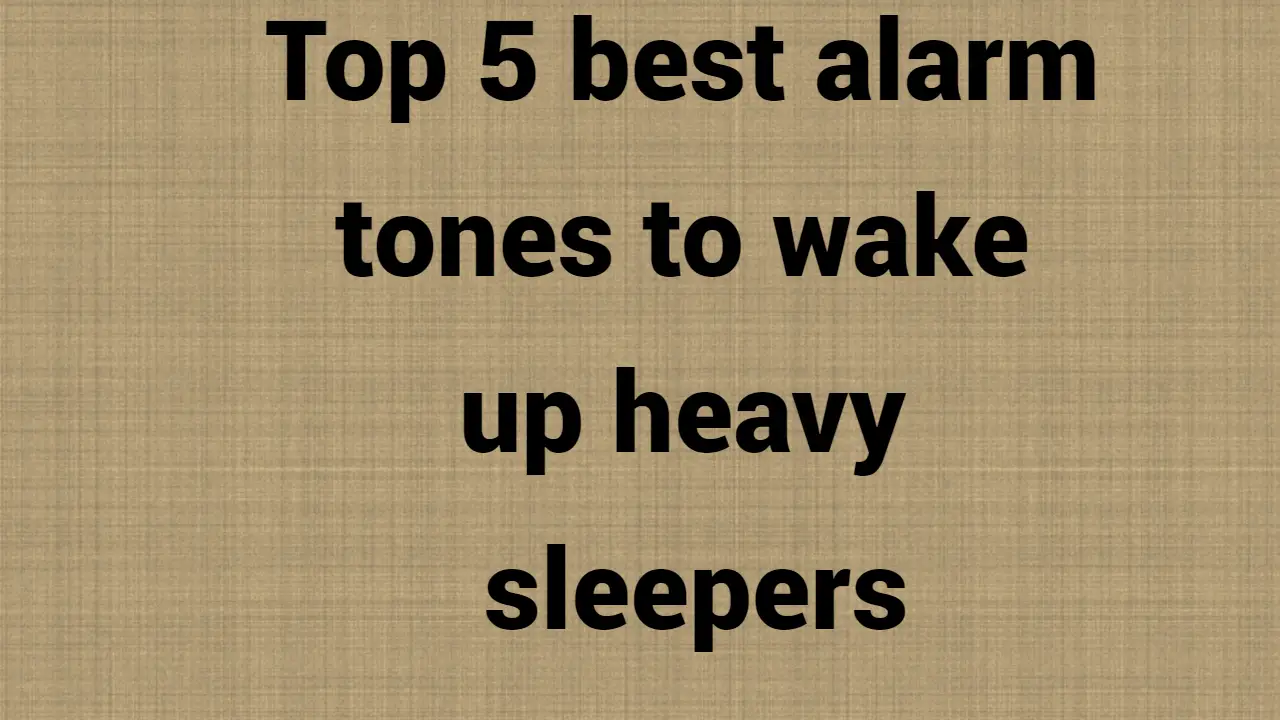It is undeniable that some sounds are more agonizing than others. Additionally, we now have more control than ever over the specific notes that awaken us from sleep thanks to expanding options for customizing how your alarm dings or beeps.
Does any of it, therefore, matter in terms of the ideal morning?
As opposed to being startled awake by a throbbing, blaring siren, I prefer to be cooed into consciousness by the sound of my alarm clock’s sweet, tinkling chimes. You see, for me, the mornings are crucial because that’s when I’m at my most imaginative. And whenever someone asks me how I stay motivated in the morning, I always say it comes naturally to me because I’m a morning person. My kind alarm may actually help me feel less groggy in the morning.
According to a recent small but insightful study, getting up to melodic alarms may make people feel more alert. The study’s lead author and researcher at the Royal Melbourne Institute of Technology, Stuart McFarlane, stated in a report that “the sound you select may have significant implications.” You might think that a startling “beep beep” alarm would increase alertness, but our data showed that melodic alarms may be the key component. It makes no sense, and the researchers didn’t either, so this is counterintuitive.
50 participants provided information for the study, including the type of sound they used to wake up as well as their level of alertness at first awakening and for the following four hours.
The research was intended to help people choose wake-up sounds that would make them feel more alert by elucidating how a particular waking sound can influence grogginess. The study found that people who were awakened by a melodic tune had significantly less sleep inertia, a term used in medical jargon for being groggy.
Your hearing suffers.
You already know how annoying it is for your ears to constantly hear noises outside your home, such as jackhammers. You might not understand the reason, though.
According to Dr. Ana Kim, an otolaryngologist at ColumbiaDoctors and an associate professor of otolaryngology at Columbia University Medical Center in New York City, exposure to loud noise can harm or even eliminate the hair cells that are found inside our hearing organ.
Every sound we hear is converted into electrical signals by about 10,000 tiny hair cells in our ears. Once those signals reach our brains’ hearing centers, they enable us to enjoy sound, speech, and music while cutting down on extraneous background noise.
According to Kim, exposure to noise can cause high-frequency hearing loss by harming the hair cells at the base of the cochlea, the spiral cavity of your inner ear. The ability to understand conversations is significantly impacted by the fact that the majority of the consonants we use in English require high-frequency hearing, says Kim.
What is known as “noise-induced hearing loss” can occur after prolonged or repeated exposure to sounds that are 85 decibels or louder..
Your brain swells up
Experts have recently learned that loud noises can hurt more than just your ears. According to Kim, this can harm the delicate nerve endings that transmit electrical signals from the hair cells in your ear to your brain, possibly triggering inflammatory responses in the brain. As a result, there is mounting proof that hearing loss may be connected to cognitive decline, such as dementia.
You feel downhearted.
Consider working in a space where the smoke alarm is constantly going off. Warning: The day would end with you in a negative mood. The same applies if you work somewhere where there is unwelcome noise. You are trapped by a dependable source. Agarwal asserts that environments with noise exacerbate irritability and anxiety. It increases the amount of mental “background noise,” which can make it harder to use calming techniques or recognize anxiety triggers.
Your immune system deteriorates.
It’s not as if hearing a truck backfire causes you to immediately develop a cold. However, Kim asserts that noise may indirectly have an impact on your general quality of life, which in turn has an impact on your general wellbeing.
Think back to that “stress hormone.” It raises your blood pressure and sugar levels while lowering your body’s resistance to disease.
It doesn’t matter what causes it to start producing, according to some experts. The consequences—an increase in infections and colds—could be the same whether the cause is noise pollution or another aspect of your life. Stress also contributes to long-term conditions like diabetes and stomach ulcers.
Your attention drifts away.
You need quiet to study, so it’s not a coincidence that you long for it. According to Kim, if you’re in a noisy setting, “your brain has to filter out loud noises for you to… concentrate.” That additional work consumes valuable energy that could be used for focus and problem-solving, two tasks that are more crucial.
According to a Swedish study, those who worked in noisy open-floor offices remembered fewer words when subjected to a straightforward memory test. In comparison to those who listened to tranquil river sounds, they also reported feeling more exhausted and less motivated to work.
Finding restful sleep will be more difficult for you.
It may seem obvious, but it’s worth stating again: According to Agarwal, “Too much noise can be distracting and stimulating to the brain, making it harder to get into a mode of relaxation and ultimately fall asleep.” In particular, outside noise degrades the quality of your sleep once you do fall asleep. You won’t just feel drowsy the next day as a result of that. Chronic health issues like diabetes, obesity, and heart disease are associated with sleep deprivation.
Having a child may be more difficult for you.
According to Agarwal, the precise reason why noise pollution or loud noises may affect male fertility is unknown. What is evident is that a loud cacophony is not necessary. Researchers from Seoul National University discovered that men were more likely to be given an infertility diagnosis after eight years of exposure to relatively low levels of noise, such as that from an air conditioner. Equally vulnerable are women. Birth defects, preterm delivery, and miscarriage have all been linked to nighttime noise exposure. Trusted Source.
How to quiet your disruptive concerns
How can you make the world as quiet as possible? Kim suggests “avoidance.”
- To put it another way, visit the library rather than attempt to finish a large work project while at your neighbor’s backyard luau. If your neighbor’s dog barks all night and you need to take a nap, try closing your windows and turning on a white noise machine.
- If your dream home is only a mile from the airport or if you enjoy your job in construction, you don’t necessarily need to change things up. But Kim suggests investing in earplugs for noises you just can’t escape.
- You might even want to spend money on audiologist-made musician ear plugs that are specially tailored to fit your ear’s specific contours. In spite of the fact that they will cost more than the ones you can buy off the shelf at your neighborhood pharmacy, they will offer greater ear protection in addition to better mental and physical health.
How to get rid of ringing in the ears:
Even though there is no immediate cure for tinnitus, there are steps you can take to reduce the ringing in your ears and any stress it may cause.
- Put on some calming music or white noise.
You can conceal the ringing in your ears by using ambient sounds like the one in the video below.
- Get distracted
You can help focus your attention away from the ringing by distracting yourself from the noise with other ambient sounds. Play some soothing music or a podcast. Playing these sounds loudly should be avoided as it can be just as harmful to your ears as going to a concert.
- De-stress
Relaxation techniques like yoga and meditation are beneficial. Install a meditation app to relieve any additional stress or annoyance brought on by the ringing.
When will the ringing stop?
Temporary tinnitus may result from infrequent exposure to loud noises. Another sign of noise-induced hearing loss is ringing accompanied by a muffled sound. Within 16 to 48 hours, these symptoms are frequently gone. It could take a week or two in the worst-case scenarios. The ringing might start up again if you are exposed to loud noises again.
There are times when this hearing loss progresses to tinnitus that lasts for more than six months. It is uncommon for this to be a sign that you are going deaf or have a health problem, but it is a common condition that could have long-term effects. You might want to take precautions to avoid long-term hearing loss if you frequently attend concerts, are a performing musician, or are otherwise exposed to loud noises. In the upcoming decades, hearing loss is anticipated to significantly increase.
Do I need to see a doctor?
Even though there is no known cure for tinnitus, research is still being done. Medical specialists are also prepared to assist you with any ongoing stress problems that may result from living with tinnitus. If the ringing continues for more than a week, schedule a visit with your physician. If your ringing is accompanied by dizziness or hearing loss, you should seek medical attention right away.
- Scientists have previously hypothesized that the reason why we find these high-pitched noises so annoying is that they acoustically resemble the alarm calls of our primate relatives, like chimpanzees.
- According to one theory, we developed the innate propensity to find these alarm calls emotionally terrifying at some point in our evolutionary history so that we would be more likely to respond to them and avoid predators.
- Even though scratching one’s nails on a chalkboard has nothing to do with actual predators, this tendency theoretically could have persisted.
Though this theory seems a little less likely now, more recent research seems to support it. In a study involving cottontop tamarins, scientists discovered that while humans find the latter to be significantly more unpleasant, the animals’ reactions to both high-pitched scraping noises (like nails on a chalkboard) and plain white noise were similar.
It is much easier to believe that certain frequencies are amplified by the actual shape of the human ear to the point where they cause physical pain. If that’s the case, our minds might automatically attribute unpleasantness to these noises due to the repeated discomfort they cause.






